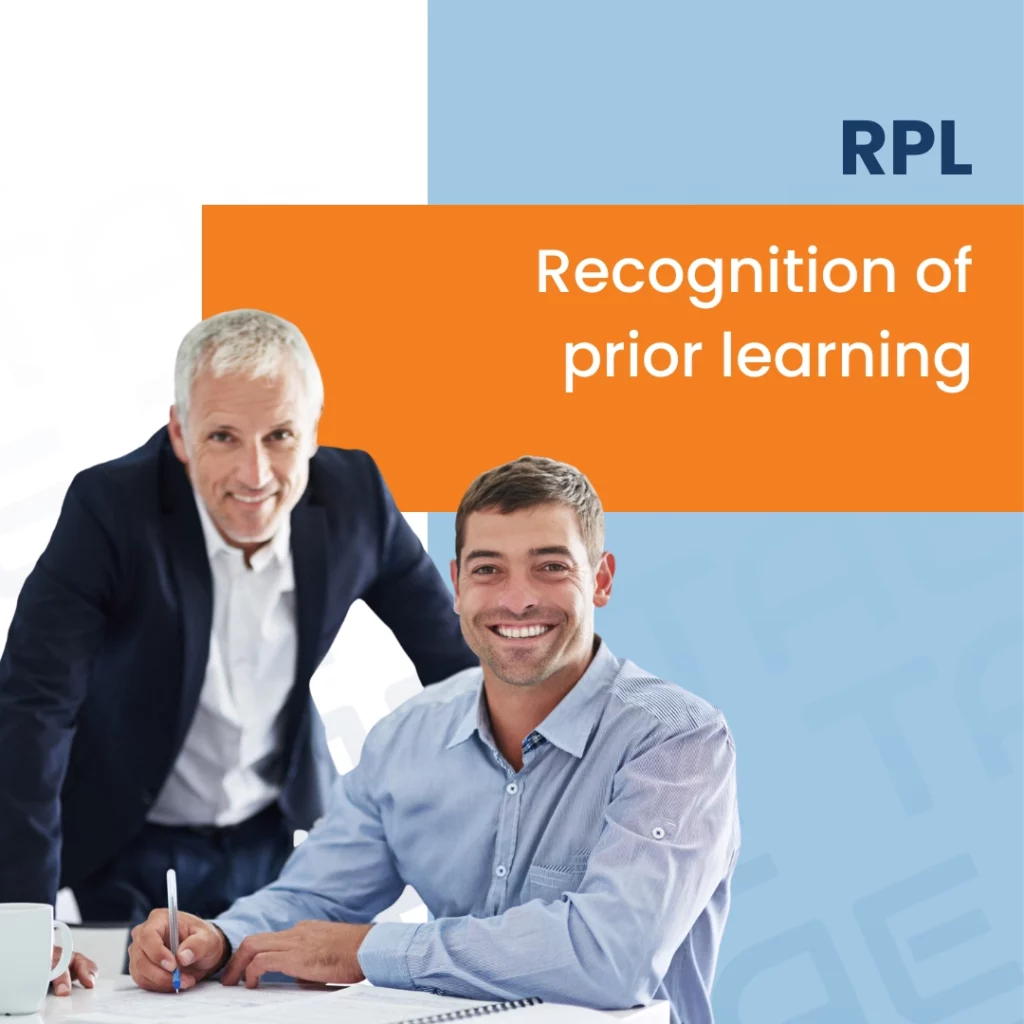Have your existing skills and knowledge recognised
Recognition of Prior Learning - RPL
RPL recognises existing skills and knowledge, saving you time and money while validating diverse learning experiences.

Overview
What is RPL ?
Recognition of prior learning is a formalised process that will evaluate existing skills, knowledge and experience gained regardless of how these were acquired and are recognised towards the achievement of a Nationally Recognised Qualification or Statement of Attainment.
RPL should not be an onerous task and is readily available to all. It allows you to progress though the qualification without having to undertake learning for skills and knowledge that you already have.
However, it is important to understand, that recognition of prior learning is an assessment process and for an assessor to make a judgement on your competency they must assess your evidence against the performance criteria from the nationally accredited training package.
How it works
The recognition process is in four parts:
1. Self assessment – The purpose of the self assessment kit is to enable you to determine whether you have the skills and knowledge relevant to apply for recognition of prior by asking a series of questions.
2. Competency conversation – The competency conversation is designed to allow you to expand on the information submitted in your self assessment. The assessor will ask you series of questions and record your answers. We will give you an overview of the types of questions that may be asked but the assessor may ask you other question to fully explore your knowledge and understanding.
3. Evidence kit and third party report – The information presented in the evidence kit allows the assessor to make a final judgement on your eligibility for recognition in the units for which you have applied.
4. Gap learning and assessment (as required) – depending on the outcome of your RPL application you may need to complete part or whole units of competency.
RPL Benefits
There are many benefits in undertaking RPL.
Streamline you learning and assessment requirements by having your previous skills and knowledge recognised in a straight forward and cost effective way. On successful completion of the RPL process you will be awarded your nationally recognised qualification.
Evidence required for RPL
What is Evidence?
Evidence is documentation that proves your competence in the units of competency. This may include work reports, work samples, photographic or video evidence, third party reports and documents relating to courses attended, qualifications achieved. You will need to provide evidence to fulfil each unit of competency. You will receive guidance throughout your RPL application process.
Rules of Evidence
When preparing evidence ensure that it meets the “rule of evidence” so that the assessor can make a judgement on your competence. Evidence must be:
Valid – The assessor must be sure that you have the skills, knowledge and attributes as described in the unit of competency and assessment requirements.
Sufficient – The assessor must be sure that the quality, quantity and relevance of the evidence can enable a judgement to be made on your competence.
Authentic – The assessor must feel confident that the evidence presented is your own work
Current – The assessor must be sure that the evidence demonstrates current competency. This should be from the present or very recent past
Timeframe and cost for rpl
How long will the RPL process take ?
The duration of the RPL process will vary depending on the outcome of your RPL application and any gap training/assessment that you may need to undertake. You will have a maximum of 12 months to complete the RPL process.
Cost for RPL
The cost of RPL for TAE40122 Certificate IV in Training and Assessment is $2,100. (This includes 1 full unit of competency). If there is more that one unit of competency that you need to complete additional fees will be payable. Additional units of competency will be provided by self-paced learning.1